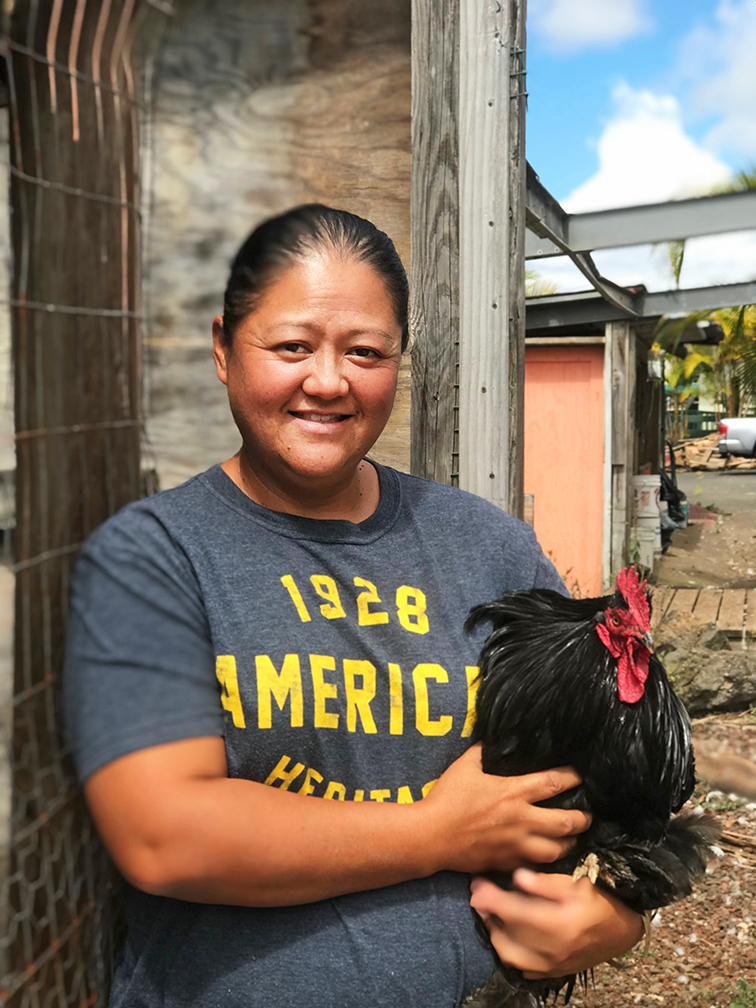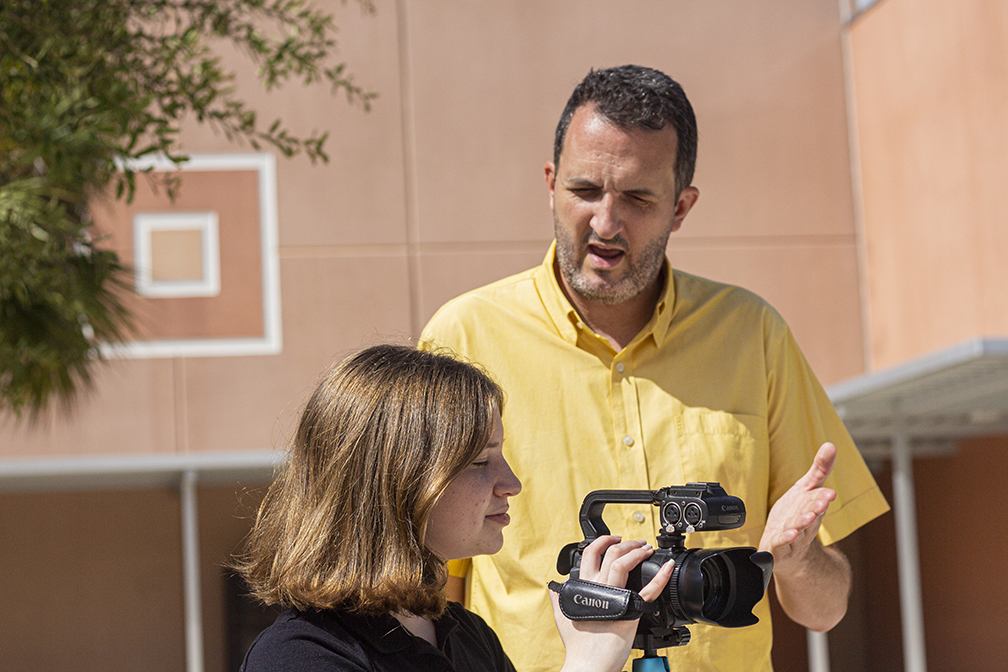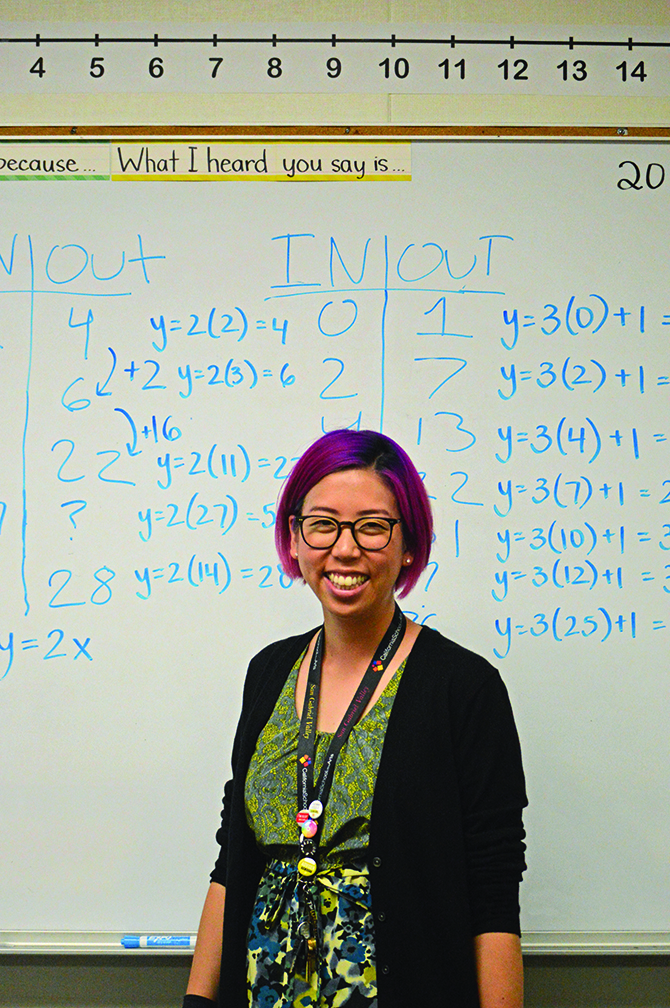FOR THE LOVE
Yearbook can be an acquired taste…
Best-case scenario, a teacher feels perfectly comfortable — and competent — in all aspects of teaching the classes assigned. The joy of preparing for courses that have become second nature after years of education is updating your lessons, changing things up, adding to your toolbox and watching the light bulbs go on as the students master the subjects at hand.
But in more yearbook classrooms than not, teachers are volun-told that their new assignments come with the job. Luckily, there are lots of resources, and the yearbook community is friendly and generous. Often, even advisers who accept their roles without much preparation find themselves loving yearbook, the process of advising and the relationships they build with their staffers.
These teachers came to yearbook in different ways. In some cases, the class fit alongside their other duties; in others it seemed to clash.
But in this case, they each learned to make the class their own.

Photo by Paulette Suwa
TINA ALCAIN
Konawaena HS • Kealakekua, HI
She’s been a yearbook adviser for 10 of the 12 years she’s been a teacher, but Alcain teaches Ag classes the rest of the day. “We have an actual farm and the students learn all about plants and animals.”
In addition to an orchard and an aquaponic operation, which combines conventional aquaculture (raising aquatic animals such as fish, prawns or snails in tanks) with hydroponics (cultivating plants in water) in a symbiotic environment, they raise chickens, ducks, sheep and fish.
The variety yearbook adds to her schedule is a plus, Alcain says. “It’s a chance to be more computer savvy — and the kids feel so accomplished when they see the book. They work all year long on that one final, permanent product, so they learn to plan and to work together to record the details of the year.”
“We like to switch things up in the book too,” she added. “I love that we can create whatever we envision. I train the kids, inspire them and let them go. We meet our deadlines no matter what!”

Photo by Pablo Vargas
PATRICK SICHER
South Dade HS • Homestead, FL
After a decade of teaching TV production classes, Sicher added other media courses, including yearbook, three years ago. Now the head of a one-man department, he spends his days helping students understand that everyone has a story to uncover.
“I always tell them, don’t just ask questions. The magic happens when they seek answers,” he explained. Both a sports and theater kid as a student, he realizes the importance of including people, being accurate and telling as many stories as possible.
As an adviser, he helps his students understand the importance of yearbook and teaches them the skills they need to succeed. “In the process, they find their voices and they achieve things they had no idea were possible,” he said.
According to Sicher, yearbook is important “because it really is the complete story of the school year, no matter if you were in sports or marching band, no matter what classes you took — even including the people you didn’t interact with.”
And he underscores that big-picture goal with a reminder for his students: A picture’s worth a thousand words, but a great caption expands it and makes it memorable!

Photo by Alexa Bras
JANE NOH
California School of the Arts • San Gabriel, CA
Though she’s taught for seven years, Noh has advised for just three. Relocating to diminish a crazy Southern California commute, she found herself advising yearbook and teaching an Integrated Math class that’s mostly algebra and statistics.
“I’d always been interested in photography — and I did say I’d try it — but I am definitely hooked,” she explained. “I love getting to know my staff on a more personal level than in my other classes. It’s fun to see my staffers’ ideas become reality, and I love seeing the readers excited to see themselves in the yearbook.”
“I’ve gotten lots of great advice through the years; right now I have been working to help the students take ownership. I am a control freak, and that’s not been easy.” A tip she’d share with others? “It’s worth spending the extra time to develop those relationships. It pays off in so many ways later.”
In yearbook, students find a sense of belonging and see that what they do matters. They learn they have a voice and can make an impact on other people. Like they say, “If it’s not in the yearbook, it’ll soon be as though it never happened.” And you can’t undo that later.

Photo by Brisa Parra
CHRISTINA MURRAY
Desert Mountain HS • Scottsdale, AZ
A math teacher for 15 years, Murray has taught an array of courses, but it was just four years ago that her schedule first included yearbook alongside her Algebra II
Honors and Calculus B/C classes.
“I’m still working on it,” she said, “but I definitely understand more each year.”
So many factors have eased the transition. Murray credits strong student leadership, lots of help from her rep and having both the former adviser and a knowledgeable bookkeeper on campus for helping her understand the intricacies of her new assignment.
Plus, she says, having a retention strategy helps a lot. “The staffers can recruit people they can work with and those they know they can rely on.”
“I like getting to know the kids,” she said. “I get to work with a broader spectrum of students and I know them in different ways,” she said. “We work through problems in yearbook, just like we do in math classes. Process and logic are important, but sometimes there’s more than one right way in yearbook.”
